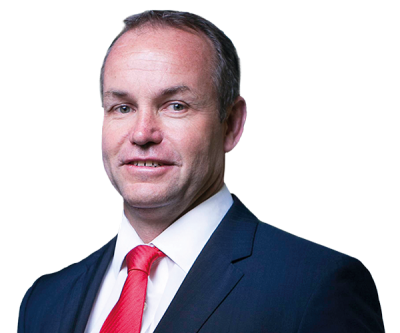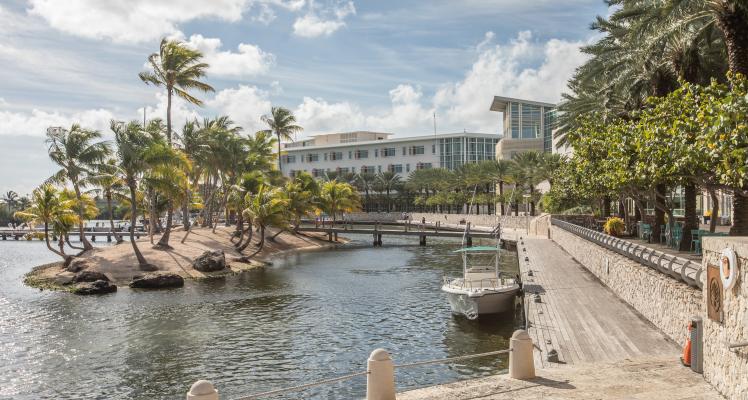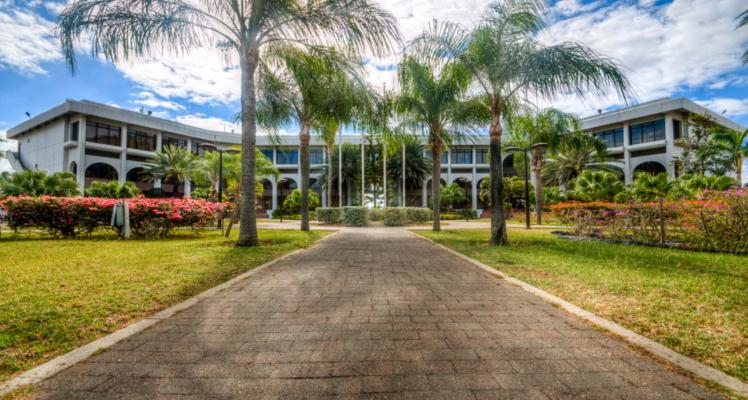
British Virgin Islands investment funds update Q1 2024
Our investment funds team outline the latest developments within the investment funds market in the British Virgin Islands ("BVI") including the BVI Financial Services Commission statistics for Q3 2023, the EU tax grey list and single-asset structures as an investment platform of choice for innovative investment arrangements.
BVI Financial Services Commission statistics – Q3 2023
The BVI Financial Services Commission ("FSC") has published its Statistical Bulletin for the third quarter of 2023. The FSC’s Statistical Bulletin is one mechanism by which the FSC communicates the progress made within several different sectors of the Financial Services industry, including Investment Business.
The FSC approved the registration of 49 new investment funds in Q3 of 2023, which primarily consisted of professional funds, approved funds and private investment funds. Albeit a decline in such registrations as compared Q3 2022 (59), it is a slight uptick on Q2 2023 (45). The total number of investment funds registered with the FSC was 1,978 as at 30 September 2023.
The FSC approved 53 new applications for approved investment managers in Q3 of 2023, which brought the total number of approved investment managers to 782 as at 30 September 2023. This marked an increase on the Q3 2022 number (34) and maintains the number of applications approved in Q2 2023 (53). The total number of "full" investment business licences granted by the FSC was 132 as at the same date.
These statistics indicate the continued attractiveness of the BVI as a jurisdiction for the structuring of investment funds and investment management entities. The BVI continues to be a leading offshore finance centre, supporting major businesses, institutions and individuals in their international investment activities.
The statistical bulletin can be found here (with 'Investment Business' statistics at page 17).
BVI remains on EU tax grey list
As a key feature of the EU's work at both local and international levels to promote and strengthen tax good governance mechanisms, fair taxation and global tax transparency in order to tackle tax fraud, evasion and avoidance, the EU maintains a list of non-cooperative jurisdictions for such purposes.
The BVI has been on Annex II of the EU list of non-cooperative jurisdictions for tax purposes (known as the "grey list") since October 2023, which includes jurisdictions that do not yet comply with all international tax standards but have committed to implementing reforms. This is pending the OECD's supplementary review of the BVI which will be launched in the first quarter of 2024.
If the conclusions of this review are positive, the BVI may be removed from the grey list in the future which would help to increase the BVI's role in cross-border transactions, and increase foreign direct investment. The next update of the EU list of non-cooperative jurisdictions is expected to take place in October 2024.
Single-Asset Investment Structures: Investment platform of choice for innovative investment arrangements
Single-asset vehicles (“SAVs”) are generally designed to pool capital from multiple investors to invest in a single target company security, or a standalone transaction, in connection with a larger part of acquisition arrangements. We expect the BVI SAVs to continue growing in popularity as an investment platform of choice for fund managers to pursue innovative investment arrangements with investors beyond traditional strategies and fund structures.
Asset managers often adopt these vehicles as co-investment funds to invest in excess capacity with respect to a target asset also being purchased by other funds and accounts, including their flagship funds. Inherent in these single-asset vehicles is an absence of diversification of portfolio risk. As such, SAVs structured as BVI limited partnerships, corporates or trusts, in general, may not meet the definition of a "private investment fund" under the relevant laws of the BVI and would not need to be registered or regulated by the BVI authorities.
Given that SAVs are often unregulated entities, there are no prescribed BVI regulatory requirements with respect to their offering terms. This has the advantage of enabling such entities to be formed quickly (and inexpensively) when compared to commingled fund structures, which can make them particularly attractive structuring tools ideal for time-critical transactions such as warehousing arrangements.
We typically see SAVs offering their shares or interests through a simple term sheet or a short-form offering memorandum accompanied by a subscription agreement or, in the case of club deals, through an investment agreement between all investors participating in the deal.
Notwithstanding being an unregulated investment vehicle, SAVs are required to conduct AML/KYC checks on their investors and file annual returns each year with their registered agents (like other unregulated BVI entities), and are considered an "investment entity" for the purposes of financial holding reporting such as FATCA/CRS. It is therefore common to see SAVs opting to appoint fund administrators to assist them with investor subscriptions and ongoing tax reporting obligations.










